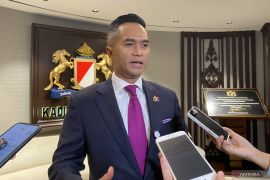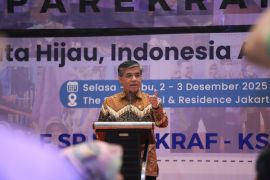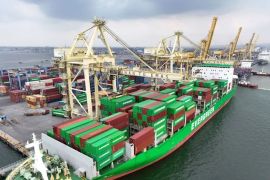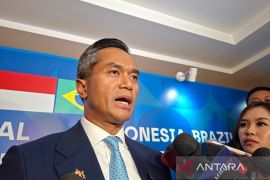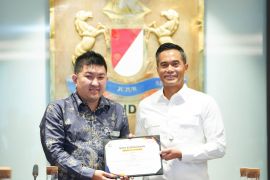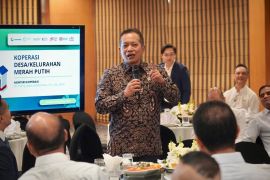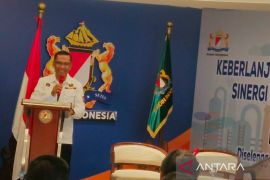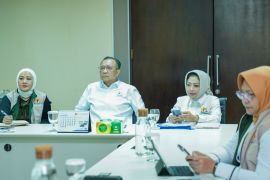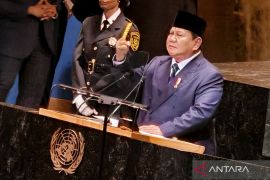Rasjid said energy transition, which had been practiced by several countries, was marked by a major shift from fossil fuels to renewable sources.
"However, a financing gap exists between developed and developing countries in their efforts to tackle climate change," Rasjid noted in a written statement received here Friday.
According to the KADIN chairman, the financing gap in overcoming the impacts of climate change should be addressed through joint collaboration between developed and developing countries.
Apart from financing issues, knowledge and technology transfer are also deemed crucial to build capabilities and adopt new technologies in the fields of green energy and digitalization in developing countries.
To this end, Rasjid invited all parties to partake in economic development and curb emission rates that are increasingly alarming.
He said Indonesia required an investment of around US$25 billion per year in the energy transition sector to achieve the net-zero emission target in 2060.
These commitments and targets can be realized through strong collaboration between the private and public sectors as well as international parties to build a green environment.
"Indonesia has proven to have enormous renewable energy potential in hydro, geothermal, wind, and solar power. Indonesia is the future of the largest renewable energy supplier in Southeast Asia and the world," he remarked.
Furthermore, Rasjid said that KADIN, as a representative of the business world, has a central role to play in order to help Indonesia in achieving its Nationally Determined Contribution (NDC) commitment and is resolute to becoming a net-zero economy by 2060.
Regarding the net-zero initiative, KADIN has a Net Zero Hub that plays a central role in inviting every company, especially leading firms in Indonesia, to participate in making zero-emission commitments.
The KADIN Net Zero Hub will have three key aspects, such as being a strategic initiative of KADIN and as a publication center for KADIN related to net zero.
"Thirdly, as a bridge between the business world and the government to achieve net-zero emissions as well as an opportunity to create added value," Rasjid added.
The B20 Indonesia Energy, Sustainability and Climate Task Force (ESC TF) had earlier emphasized the importance of accelerating transition to using sustainable energy as a key factor in preventing catastrophic global warming and climate change.
Earlier, Chair of B20 Indonesia Shinta Kamdani vouched to continue to encourage collaboration in welcoming a fair energy transition to achieve the vision of fair, inclusive, and sustainable economic growth.
Kamdani emphasized the need for strong collaboration between the public and private sectors around the world to mitigate obstacles and concerns in the energy transition process, including access to clean energy, financial, and technology support.
Related news: Need strong ecosystem to support energy transition: BRIN
Related news: Need to balance EV transition with manufacturing readiness: ministry
Translator: Subagyo, Resinta Sulistiyandari
Editor: Rahmad Nasution
Copyright © ANTARA 2022

